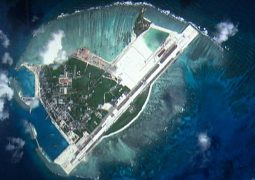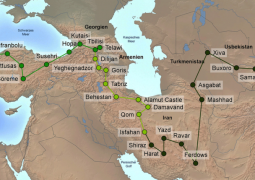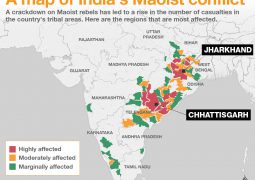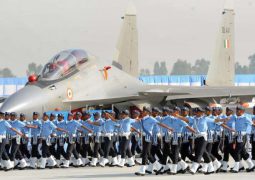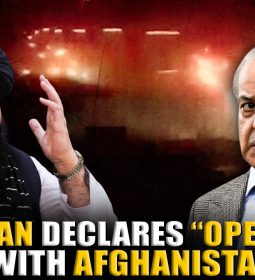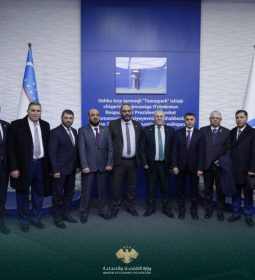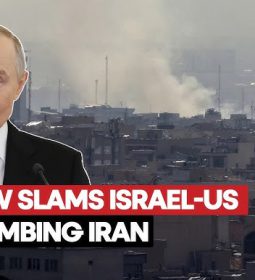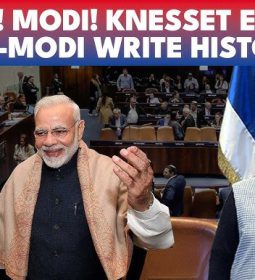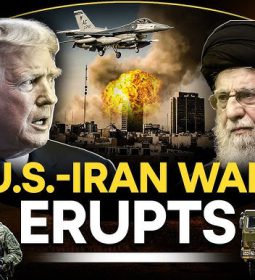Sings of loomimg wars for water in the future?! India to Stop Its Share of Water From Flowing Into Pakistan

(Bloomberg) — Pakistan said it will respond if India launches a military strike, a day after Prime Minister Narendra Modi’s administration announced plans to divert water from its neighbor as tensions between the nuclear-armed countries remained high following a deadly terrorist attack in Kashmir.
On Friday, Pakistan’s army spokesman said that the country did not want a war with India but warned that Islamabad would retaliate and “dominate the escalation ladder” if New Delhi authorized any military strikes.
“Pakistan’s armed forces shall never be surprised by you, but let me assure you we shall surprise you,” Major General Asif Ghafoor said at a press conference in the garrison town of Rawalpindi on Friday. “We can respond to the full spectrum of threats and I hope you get this message. Don’t mess with Pakistan.”
Still, the scope for escalation is limited. Any military strike risks a miscalculation that could trigger a devastating conflict in one of the world’s most populous areas as both the South Asian nations have nuclear weapons.
India — as well as the U.S. — blames Pakistan for harboring terrorists seeking to destabilize its neighbors, claims Islamabad denies. Separately on Friday, a global anti-money laundering agency said Pakistan has made “limited progress” on a plan to combat terrorism financing due last month.
Other Measures
India announced projects on Thursday, that will stop its share of water in the Indus river basin from flowing into Pakistan, water minister Nitin Gadkari said in a series of tweets. The projects will shift waters from the Ravi and Beas rivers for use in the states of Punjab and Jammu & Kashmir.
The decision came after 40 paramilitary soldiers in Kashmir were killed in an attack last week claimed by Jaish-e-Mohammed, a Pakistan-based terror group. It was the worst strike since Modi came to power in 2014 and comes just months before the country’s general election. New Delhi has blamed Islamabad, though Pakistan’s government has denied any role.
India instead has been desperate to find other ways to pressure Islamabad. So far, it has moved to isolate Pakistan diplomatically, scrapping the most favored nation status granted earlier. Modi’s government also slapped 200 percent duties on imports from the country. India had threatened to review the 1960 Indus Waters Treaty after a previous attack in Kashmir two-and-a-half years ago.
On Thursday, Gadkari said work on the stalled Shahpur-Kandi dam had already begun. Along with a reservoir project using water from the Ujh, the Ravi’s main tributary in Kashmir, India will also link the Ravi and Beas rivers to divert their waters to other basin states, he said.
The projects are in accordance with the Indus Waters Treaty on sharing waters of the river basin, a senior water ministry official said on the condition of anonymity, citing government rules. The projects, which will take between one-and-a-half to six years for completion, will stop water that is rightfully India’s share, the official said.
India’s Share
“Timing is always important when you want to give a political message — it’s a message that India has given,” said Uttam Sinha, a senior researcher at the Institute for Defence Studies and Analyses in New Delhi. The step will prevent large quantities of India’s share of water that currently flows to the neighbor, he added.
The treaty covers the water distribution and sharing rights of six rivers in the basin. Pakistan was allotted three western rivers — the Indus, Jhelum and Chenab — for exclusive use, while India retained the Sutlej, Beas and Ravi that flow eastward. India could also use some of the water from the western rivers for irrigation purposes even though it could not store any water or build any structure for storage.
The six rivers that form the Indus river basin have been a potential point of conflict between the neighbors despite the five-decade-old treaty. India had in 2016 said it would review the treaty after 19 Indian soldiers were killed in disputed Kashmir, which is claimed in full by both countries.
(Updates with Pakistan military comments.)
–With assistance from Kamran Haider.
To contact the reporters on this story: Archana Chaudhary in New Delhi at achaudhary2@bloomberg.net;Iain Marlow in New Delhi at imarlow1@bloomberg.net
To contact the editors responsible for this story: Unni Krishnan at ukrishnan2@bloomberg.net, Abhay Singh
- Previous North Korea’s forgotten fighters in Vietnam
- Next The Telegraph, UK: Saudi crown prince defends China’s right to put Uighur Muslims in concentration camps



